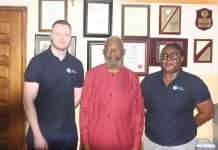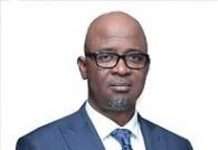No fewer than 25 representatives of pharmaceutical manufacturers in Nigeria attended the recent one-week training on Common Technical Dossier (CT Dossier) organised by the United States Pharmacopeial (USP) convention.
The hands-on workshop, held at Ibis Hotel, Ikeja, Lagos, had production assistants, managers and several quality assurance officers in attendance.

Speaking with Pharmanews, Dr Chimezie Anyakora, a consultant and USP chief of party, explained that the CTD is a new way of dossier submission, aimed at capturing all aspects of quality attributes of the medical products being submitted.
Explaining further, Anyakora said, “It is also a unified method for all the countries, making it easy for one dossier to be submitted to multiple countries, including WHO. As you can see, the training was well received and the participants have also promised to brush up their colleagues.
“CT Dossier will definitely improve patient safety as well as the ability of local players to operate beyond Nigeria by having dossiers that can be accepted outside the shore of this country.”

While reiterating their commitment to build up capacity of local pharma manufacturers, Anyakora disclosed that the National Agency for Food and Drug Administration and Control (NAFDAC), wants to make the process mandatory for all dossier submission in Nigeria.
Another official, Pharm. Jonathan Ukwuru, senior Good Manufacturing Practice (GMP) specialist added that there is a need for pharma manufacturers to unify all the registration process of pharmaceutical programmes globally.
“The good thing about this is that the current NAFDAC DG has mandated that all pharma manufacturers submit their dossier in CTD format. By so doing, we are helping the industry increase the awareness and knowledge as well as to compile the CTD to international standard.
“Of course, we must not also lose sight of the fact that in the last few years, a lot of good products have been procured by international agencies from Nigeria. Apparently, the strong collaboration between NAFDAC, being the regulator, and local manufacturers have made our job easier,” he said.
Taking a cursory look at the recent alarm on the abuse of drugs like codeine, in which some manufacturers were indicted, Ukwuru stressed that codeine is a product recommended for manufacturers.
“It is not that the pharma manufacturers added more than the required dosage. It is just a problem of drug misuse. It is not different from taking more food than the body can contain.
“Meanwhile these products are regimented. They are meant to be given according to the dosage required at intervals. Unfortunately, we have a situation where young people just take it arbitrarily, which does not actually help the system,” he explained.
As a way out, the senior GMP specialist canvassed a strong collaboration between federal government and the pharmaceutical industry to resolve the situation.
Also in attendance were Dr Okey Akpa, chairman, Pharmaceutical Manufacturers Group of the Manufacturers Association of Nigeria (PMGMAN) who declared the workshop open; Mopa Esuga, GMP specialist; Olutoun sanusi, USP official and Yewande Obadipe, USP official.
Some of the companies represented at the first batch training included Emzor, Fidson, Juhel, Daily-Need Industries, SKG Pharma, Jawa, Drugfield, Ranbaxy, Dana, Phamatex industries, Mopson, Swipha, Tuyil, Nemel, Neros, Swiss pharma, Neimeth, Afrabchem, Peace Standard and May & Baker.
The United States Pharmacopeial (USP) Convention and the United States Agency for International Development (USAID) formed a cooperative agreement about 20 years ago to promote quality of medicine globally. This gave rise to a USP programme known as ‘Promoting the Quality of Medicines (PQM). Today, PQM is active in 38 countries.
In Nigeria, the PQM programme has been active for about four years. Its office was formally established two years ago in Lagos.










